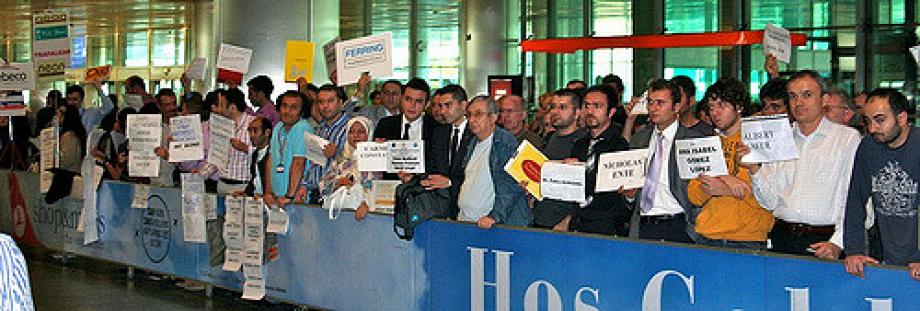A few weeks ago, I attended a workshop about nomadic life scripts and how nomads create a sense of identity.
Not that I considered myself a nomad but I was interested in learning about how nomads fulfill their need to belong.
One of the most obvious requirements of our time is to be flexible which includes travelling the globe, to be able to work with and in different cultures. Nomadic lifestyles are enthusiastically described as a modern way to live like never-ending self-exploration and meaningful encounters. Such a life means permanent movement, its permanent relocation, but with the “privilege of free choice”. (The free choice is the main distinction to migrants: they belong to a place but their life is disrupted through external circumstances.)
It’s a life between borders and cultures, permanently challenging perspectives and identities.
The main types of nomads are:
- domestic nomads: people (tribes) living and travelling from place to place (classic nomads)
- spiritual nomads: people on a long-term journey to find enlightening and share it with others (missionaries, long-term backpackers on their journey to self-discovery)
- corporate nomads: people working for corporations and/or government institutions and follow their work. This includes remote work (digital nomads).
Corporate nomads are seen as living an interesting and relatively secure life as they don’t always have to give up their domestic place, can work from home and travel when needed. But of course, their choice is limited by the decisions of the corporation. Despite of that, I find it compelling to live and work in such a way.
But a nomadic life, no matter what kind, comes with some disadvantages too.
- It’s more difficult to attach to a place and people.
- Relations are often short time and based on a minimum common link that brings people together. Thus, what we retain from such relations is not always very profound.
- The right to vote is split into a local / regional and a national one. I my case, I was allowed to vote locally after three years living in France but I am still allowed to vote for the German Bundestag. Which is quite strange to me as I am currently more affected by french politics. I think, after a short time, people should have the right to vote on all levels in the country they are living in.
(We had long discussion about this topic in the last weeks and we are not really happy with our possibilities to use our right to vote.)
It was no surprise for me that the participants of the workshop did not call a physical place their home. But everyone could name some parts of the world which they feel more or less at home. I have the same feeling about it. Home is not necessarily a physical place to me (even though I like the house and place I am living right now), it is a place where I want to be.
When I was asked how I define my identity, I had difficulties to describe it.
I don’t really feel attached to a special country.
Since 11 years I am living in France.
For about 19 years I worked in different countries in Europe.
I am speaking three languages, learning a fourth.
The country I was born in does not exist anymore since 28 years.
Most likely, I would describe myself as a European.
I am a privileged white woman. I have the freedom to live in any country I want. On a professional level, I am organised, effective and efficient.
I never stayed longer than three years in one company or work position and thus I have practiced many professions: I was a finance manager, an office manager, a sales manager, a business consultant, a coach, a project manager. Now I am an artist and a house restorer.
Somehow I have been a working nomad. I never really spend much thoughts about this way of living, it’s just natural to me and I like it.
In the last 18 months, I settled down a bit. I was exhausted from travelling and working in different places and I needed a break.
I am now ready to travel again, without (much) work ;-).

